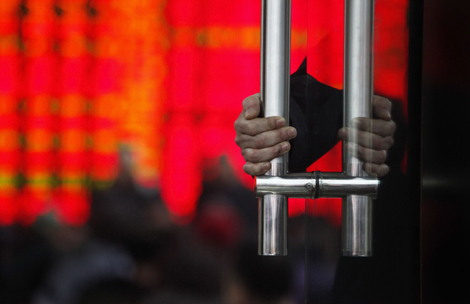BizChina
- Details
- By David Cao
- Hits: 984
Zhejiang Furun Co. Ltd, a silk spinning and weaving company based in east China's Zhejiang Province, said Tuesday its 2009 profit jumped over 900 percent on a used army uniform recycling project and a machinery upgrade.
Total profit in 2009 soared 909.1 percent year on year to hit 68 million yuan (10 million U.S. dollars), according to a statement filed at the Shanghai Stock Exchange.
Read more: China textile company Zhejiang Furun : 2009 profit jumps 900%
- Details
- By David Cao
- Hits: 1263
In 1995, Morgan Stanley published "The Internet Report," a groundbreaking study that became known as a Bible for investors during the dot-com revolution in the United States.
Fifteen years later, China Greentech Initiative has produced a similar report. However, instead of focusing on the future of the web in the West, it centers on the potential of green technology in China. It is called the China Greentech Report.
"China is going to be one of the most important green tech markets in the future," said China's "Queen of Green", Ellen Carberry, co-manager of the China Greentech Initiative, a Beijing-based group made up of more than 80 companies and organizations with interests in the environmental sector.
"People are ready to dive in, but they have to figure out where to go and what to do," she said.
In 2002, while working for IBM, Carberry moved to Beijing. Several years later, she left the company to help Red Hat, an open source software provider, set up its business operations here. Her latest venture is the China Greentech Initiative, producer of the groundbreaking report.
- Details
- By Mengxin
- Hits: 1343

Maintenance at China's second-largest refinery.
Following this winter's harsh business chill, China's second-largest refinery is now feeling the warmth of spring, said Xu Xiankun, president of Sinopec Maoming Petrochemical Corp's ethylene facility.
After a halt in operations for maintenance and repairs in January and February that resulted big losses in revenue, the Shenzhen-listed company is expecting to hit a record-high monthly production of 100,000 tons of ethylene this March, a rebound fueled by the recovery of the manufacturing industry in the Pearl River Delta, the company told China Daily over the weekend.
- Details
- By Mengxin
- Hits: 1372

In the worldwide economic crisis of the past three years, China held up better than most countries and achieved more than 7 percent annual growth in its gross domestic product.
In the 1980s, a crucial question for portfolio managers was what to do about Japan. Today, the parallel question is what to do about China.
From 1978 through 1989, Japan gave the United States heavy competition for world leadership in business and finance. Japanese stocks rose 12 years in a row, gaining a cumulative 700 percent, or almost 19 percent a year, compounded.
- Details
- By Mengxin
- Hits: 1926
Enterprising college students seek slice of Apple-hungry Chinese market

Jack Lee (not his real name) is a gray-market iPad seller in China - or at least he hopes to be.
For now, until Apple kicks off US sales of the much-hyped tablet PC in early April, all he has to sell is the future, promising delivery of the device by taking orders in advance.
The New York-based postgraduate student's business model is simple: buy a 16G WIFI iPad in the US for $499 (3,407 yuan) and informally ship it directly to his online customers back in China, charging them 5,500 yuan for the privilege of having a gray-market one early. Subtract around $30 for shipping and another $45 to cover NY-sales tax, leaving Lee with a cool 1,890 yuan in his pocket.
To date, Apple hasn't said when or even if it plans to release the iPad in China. Apple China spokesperson Tiffany Yang refused to comment on this story.
While the 24-year-old Lee's idea may sound unique, he is actually far from alone in his venture. A review of popular online shopping website, taobao.com, reveals several hundred people are offering to flog Apple's new tablet for prices ranging from 3,500 yuan to 6,200 yuan.
So far, Lee's business is not exactly booming.
More Articles …
Page 62 of 120